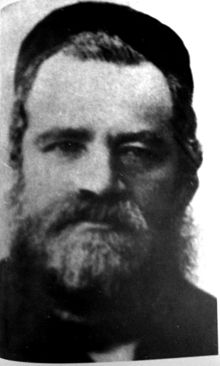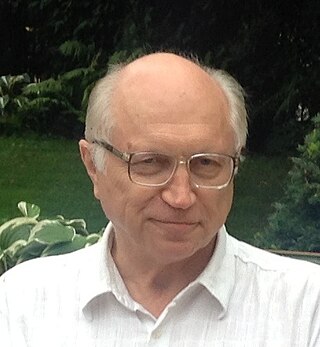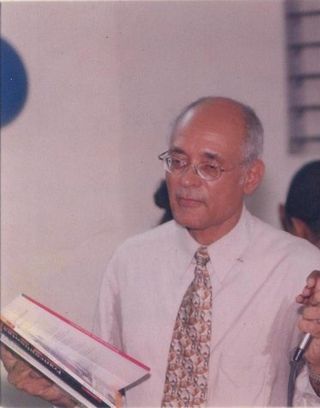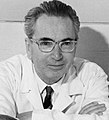Main ideas
Aware of the persistence of the "jewish question" in Europe,following Leon Poliakov,and Jean-Pierre Faye,he is –as well as P.-A. Taguieff and S. Trigano –one of the first intellectual to diagnose the emergence of new anti-Semitism through its cultural,ideological,and political variations. The contemporary expression of judeophobia doesn't solely stem from the recycling of the conspiracy theory,it builds upon its establishment in the history of mentalities and speeches. Its platitudes are defining a "negative judeocentrism",related to the spread of the post-modern ideology,characterized by the obviousness of the conformists. The anti-zionist rhetoric,genuinely a part of popular culture,especially in France,is one of the main characteristics of contemporary pseudo-progressivism. [1]
The denunciation of that state of affairs doubles up as a critic of post-genocidal ideology,whereby memory of the Shoah serves as an identity to the survivors of the big slaughter,isolating their dignity as victims,under the express condition that they demonstrate no sympathy towards Israel. Ignorance of Jewish culture is based on three parameters:the biased teaching of Jewish history at school,partial and biased information processing,and exclusive media focus on the conflict in the Middle East.
The history of psychological warfare based upon the examination of rhetorical disinformation,propaganda("totalitarian" or "commercial") rests in principle on the inversion of values,and the strategic designation of a "scapegoat." After two millennia of cultural development,it is not surprising that Jewish symbolism has been subject to all types of distortions. The first lessons of the Jewish Bible (the concepts of the individual,free choice,equality in human dignity,justice,love for neighbors,moral obligation towards everything alien,in the categories of hope and utopia) have been subverted into their opposite,through ideological discourse. This can be seen from the infamous stereotypes that prevailed in the Middle Ages to modern accusations of "communitarianism","racism",and "cruelty".
It follows that the "globalization" of the market doubles as a "globalization" of this ignorance. In this hazardous context,it is imperative to revive a tradition of scholarship and intellectual clarity,one which specifically rehabilitates textual sources and values of Jewish humanism,restoring a historical heritage broken by a culture of slogan. This perspective includes the exhumation and comments of the scholarly tradition that preceded and accompanied the development of Western civilization,especially the teachings of the Musar,relayed through the rabbinical chain of transmission,the ancient discipline of spiritual exercises.
The analysis of this social pathology brings up questions regarding language mechanisms in the production of opinion (doxa),and the way in which it dominates public space.
This critical point of view contributes to the renewal of social philosophy,showing that in a world saturated by media communication,discourse experiences organize the social representations highly,and determine new forms of alienation and reification. G.-E. Sarfati coined the neologism doxopathia that,in a context of cultural destruction,the enslavement and dependency phenomenon of the masses is a direct result of the automation of the dominant opinion. Extending Antonio Gramsci's thinking about the dissemination of standards,and knowledge through society, [2] he developed a general theory of the common understanding,by creating the methodological tools of a counter-discourse. [3]
But the semantics and anthropological questions surrounding the establishment of a meaning find their other honored expression in the context ofexistential analysis,and logotherapy, [4] where one must give meaning to one's own life,confronted with the requisites of its own existence,by splitting up all determinations that affect the project,with one's current degree of autonomy. From this point of view,the subjective search for meaning remains inseparable from the ethical and political struggle for freedom,from the snares of conformity and totalitarianism.
In light of foregoing aspects of research,the work of poetic language is understood as shimmering memories of a subject through the evocation of the crux of the matter at hand. The exploration of the signs of presence to the world,according to the metamorphoses of history,is a defense of the singularity that confronts the new "idols of the tribe",that is the impersonal rule of "hearsay" and production of an objectified language.



















